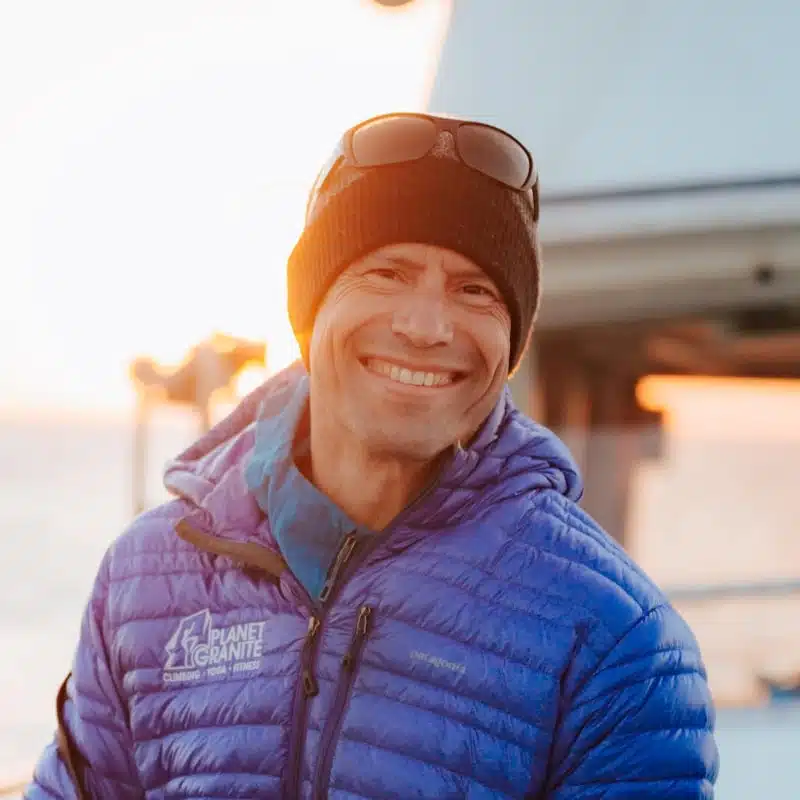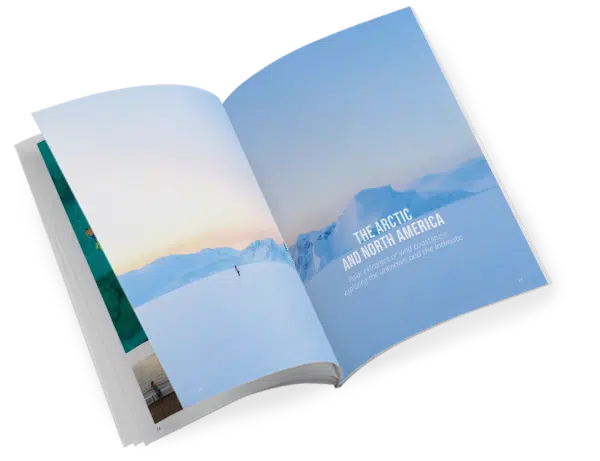Interview with Ted Cheeseman
A trip guide, an Antarctica expert and a PhD student in marine biology, Australian Ted Cheeseman founded the Happywhale platform in 2015: a participatory research tool dedicated to studying whales. In December 2021, he travelled aboard the Commandant Charcot to observe whales and introduce this collaborative project to PONANT passengers. Find out all about it here.
What is the objective of Happywhale ?
Happywhale is a research collaboration and citizen science platform focusing on whales. It lets anyone contribute to improving our understanding of these fascinating animals.
It’s easy to use: anyone who spots a whale in the wild can take a photo of it and upload it, providing us with when and where the photo was taken. Our image recognition tools (based on artificial intelligence) are then able to identify the individual photographed. This contributes to our scientific database. And we notify the contributor if this whale is resighted. This means they can follow the journey of THEIR whale and understand its migration.
Our tools currently apply to humpback whales and sperm whales, and we hope to expand to other species in the near future.
What is Happywhale?
Founded in 2015, Happywhale is based on an observation: marine biology specialists often lack data, while the general public produces a massive amount of photos of the marine and underwater worlds. These two groups should therefore be brought together! The Happywhale tool allows anyone to upload photos of whales and makes them usable by scientists using cutting-edge digital tools. The database now includes 60,000 different humpback whales.
How do you identify a whale?
First, we look for the ‘blow’ — when a whale exhales — then we look for the body shape, dorsal fin, and what behaviours are displayed. Through many years of experience, we can usually identify the species of whale very quickly, but there are also good identification books that are very useful, such as Handbook of Whales, Dolphins, and Porpoises of the World by Mark Carwardine.
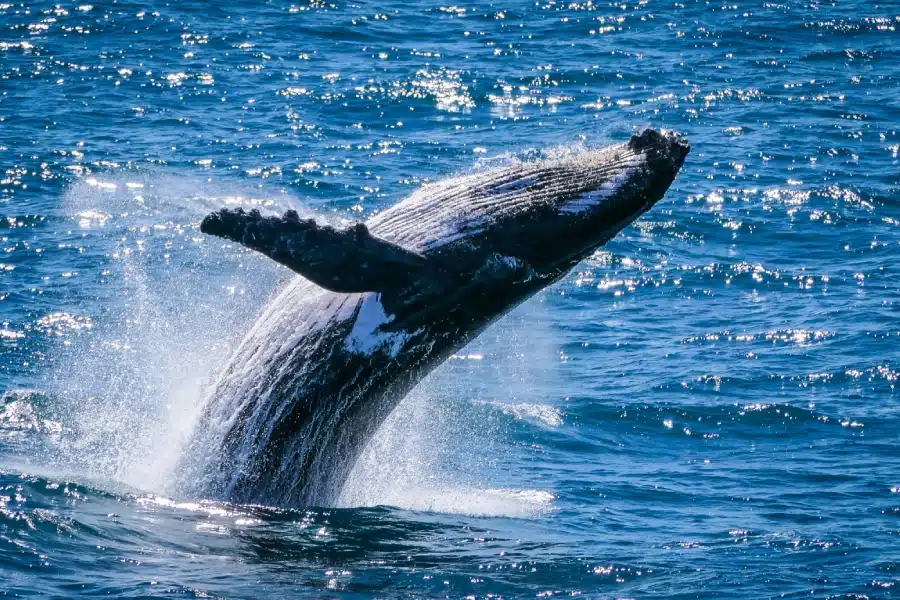
What is the purpose of all these observations?
They help us better understand whales and their place in the marine ecosystem. For example, before most whales were killed by 20th-century industrial whaling, we believe that whales in Antarctic waters ate massive amounts of krill. Logically, you’d think that reducing whale populations should increase krill volumes in the region. What is remarkable, though, is that when these whales were removed, it appears that the total volume of krill decreased. This is a paradox, but what we now know is that whales actually fertilise the oceans by recycling nutrients.
This discovery is extremely important for our understanding of ocean health, nutrient cycling and even the global carbon balance. Whales literally help control the global climate!
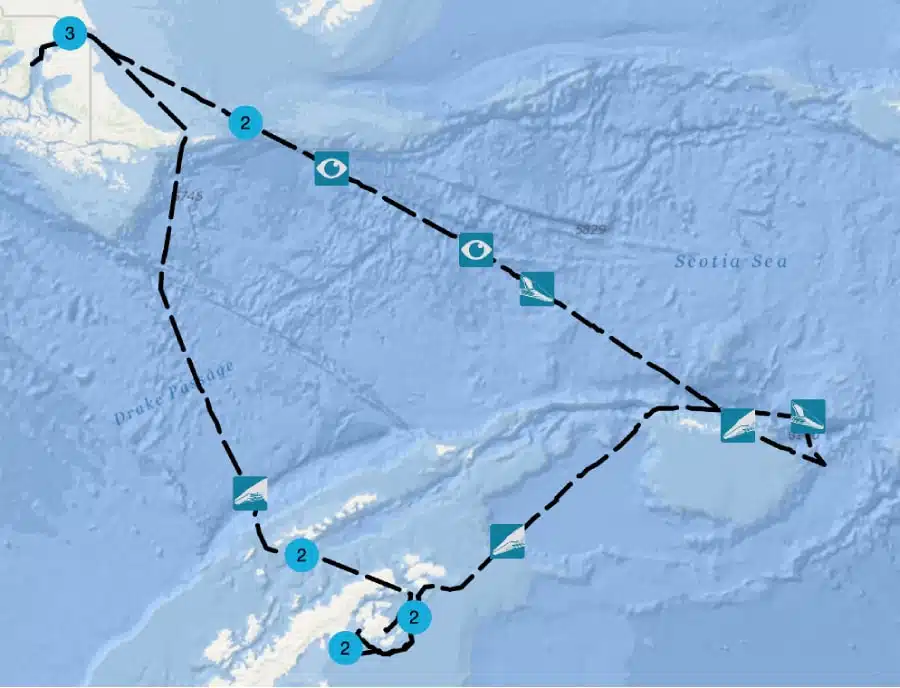
This map shows the ship’s itinerary in early December, and indicates the locations where photos of marine mammals were taken during this trip.
Follow all encounters online
Find on the PONANT profile of the online version of the Happywhale app all the photos and details of every sighting made on a ship of our fleet since 2019.
Are the data collected on board analysed afterwards?
Absolutely. That’s the whole point. Science is not a moment of discovery; it is a long term building of understanding. What’s more, the passengers gave us a warm welcome and showed strong interest in our research. These explorations can have a profound and lasting impact on travellers.
Passenger cruise ships cannot do everything a dedicated science vessel can do. But they can help research by providing platforms that are useful to scientists and educational for the public. These education and science opportunities must be seized to their fullest.
PONANT want to make the Commandant Charcot available to scientists studying the polar regions. I see great potential here and am excited to be a part of helping PONANT create the most impactful science opportunities possible with the unusual itineraries in the Arctic and Antarctica that the Commandant Charcot will sail. Especially since it fits perfectly with Happywhale’s purpose: supporting scientific discovery and sharing it with the public.
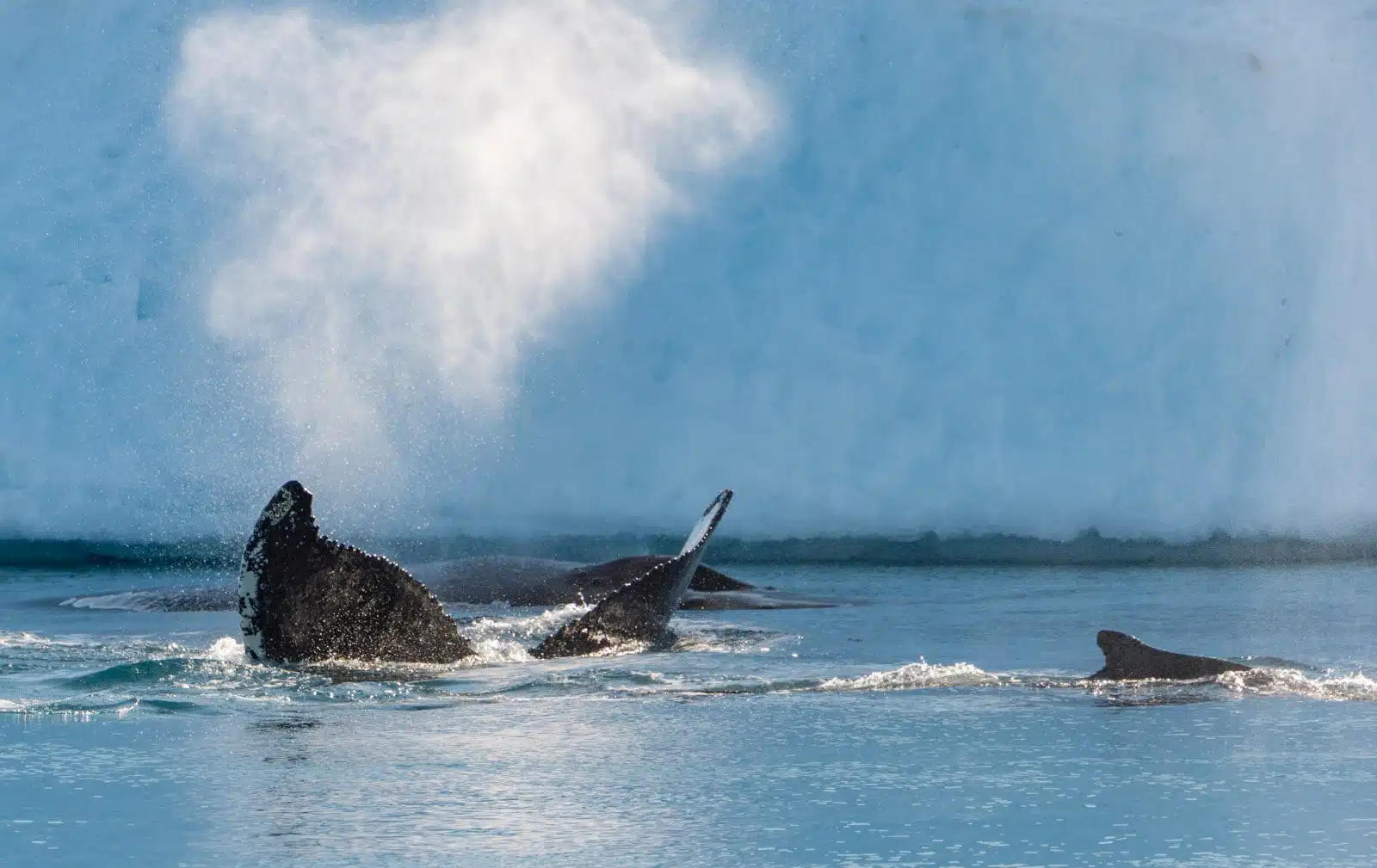
Good news for the planet
“The recovery of whale populations is one of the best environmental news stories right now. But few people know this is happening. So I focused on this quite a bit because it is very good news. There are many threats to whales today, but the fact that whales exist at all, considering the scale of whaling in the last 110 years, is a miracle in and of itself.”
Do these types of collaborative tools raise awareness of environmental issues?
Of course. Citizen science is powerful both because it can be a source of data for research and because participating in science makes it more meaningful to the public. Reading an article about events happening on the other side of the planet might teach you a little, but it doesn’t help you understand what you can do to preserve the environment. If you participate in it first-hand — if you photograph a whale, then learn that your whale is new to science, then are notified that your whale has been seen again thousands of miles away — it means a great deal more.
More about Ted Cheeseman
“My parents were biologists and nature guides, so I grew up travelling on safari with them, learning about nature and animals worldwide! After several years studying biology, I began organising and guiding Antarctic expeditions. In 2015, I turned towards whale science, and I am now completing a PhD studying humpback whales. “
Photos credits : ©Ted Cheeseman / ©PONANT/Nick Rains / ©Studio PONANT/Morgane Monneret
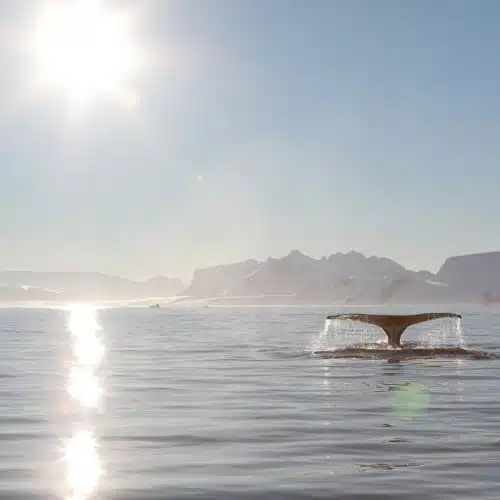
Embark on a polar or tropical expedition cruise to discover the treasures of the marine worlds.

